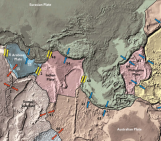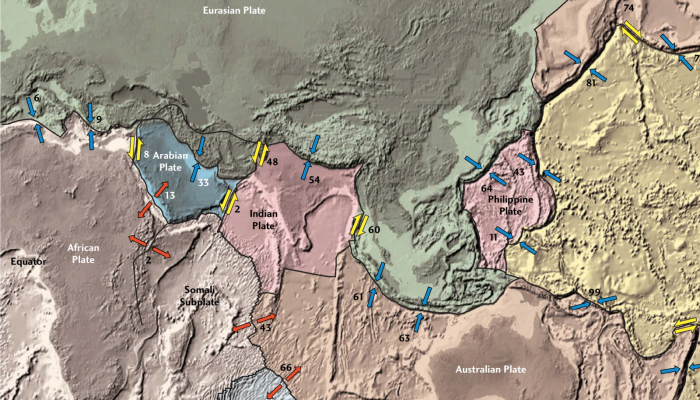
These blogposts present interviews with outstanding scientists that bloomed and shape the theory that revolutionised Earth Sciences — Plate Tectonics. Get to know them, learn from their experience, discover the pieces of advice they share and find out where the newest challenges lie!
Meeting Nicolas Coltice
Nicolas Coltice graduated with a PhD from the École Normale Supérieure of Lyon, France. He then became assistant professor at the Université Claude Bernard in Lyon, and ultimately, full professor. As of last year, he also holds a professorship position at ENS Paris, France. He has received an ERC grant for the project AUGURY and he is one of the co-founders of the manifesto ’Did this really happen?’, which addresses sexual harassment and inequality issues within sciences.
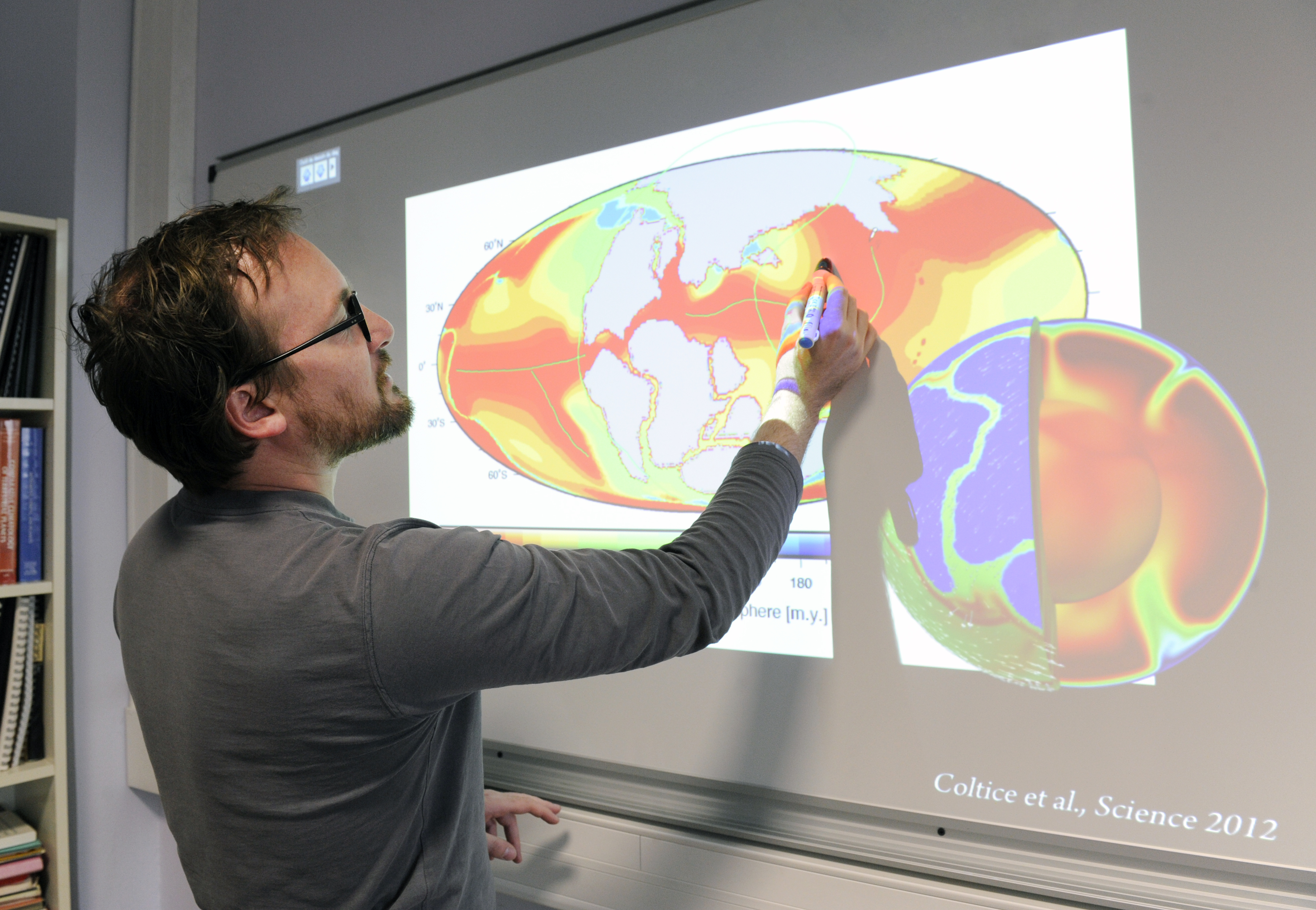
Nicolas Coltice. Credit: Eric Le Roux / Université Claude Bernard Lyon 1.
I think it is extremely important that models are supported by evidence or data.
Hi Nicolas, could you tell us about your research interests and the methods you use to solve your problems?
Sure! My research interest is focussed on mantle convection and geochemistry. The research I do is strongly directed to combine models and observations to understand, for example, the geochemical cycle. I also combine observations and inverse models to build tectonic reconstructions and 3D spherical models. I work a bit with geologists and so I sometimes go into the field. I think it is extremely important that models are supported by evidence (or data) and so I try to combine this as much as I can in my research.
You have been active on different topics. What achievement in your carer are you most proud of?
The one thing I’m most proud of is setting up an ERC team for the project ‘AUGURY’, which happened to have more women than men, which is quite rare in our field. I feel we made quite some progress on undermining the patriarchy within sciences with this ERC project. I’m very proud to work with my team. One of the good things that came out of ‘AUGURY’ is our manifesto ’Did this really happen?’. It is a website where we tell the stories on sexual harassment and gender inequality that women in sciences using comics. Besides advocating gender equality science I also teach, which I find very fulfilling and my teaching is well-received.
Good research needs time.
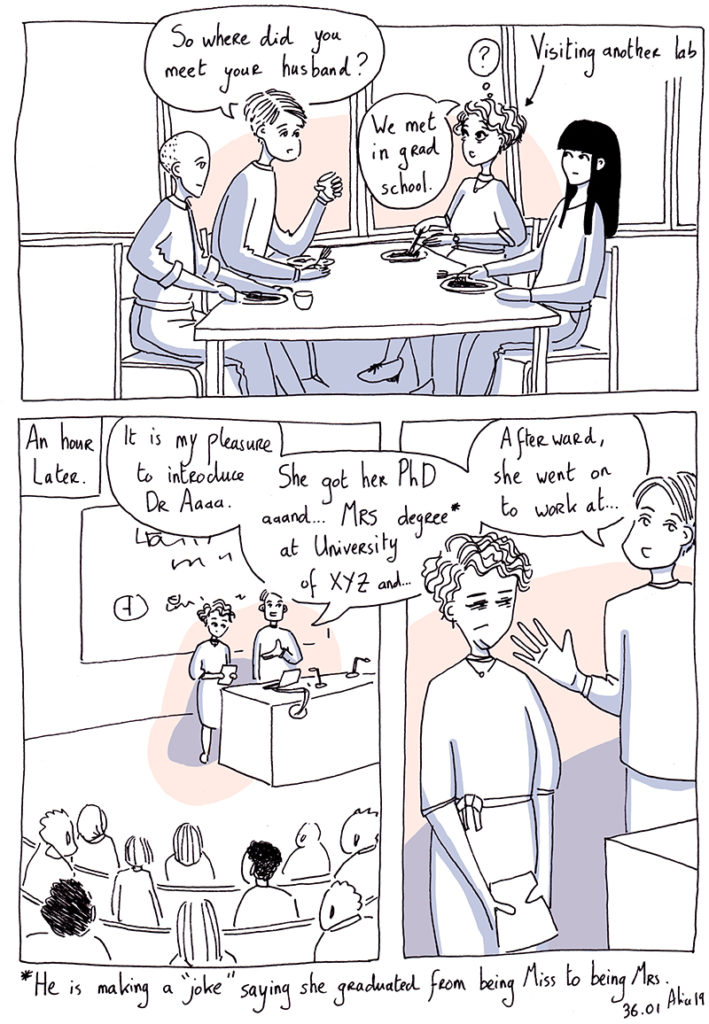
Did this really happen?. Courtesy of www.didthisreallyhappen.net.
It’s fantastic that you are making the community aware of these more social issues. In terms of research, how does that benefit society?
The application of my research to society is first of all doing the job by itself. Every day that scientists invest in understanding parts of our planet is beneficial to society, just by the very act of it. Publishing my work might give a breach to society and offer perspectives that were not thought of before. I guess a more concrete way my research benefits society would be in the reserve or resources industry, where we always like to understand better where resources form and why they form under certain condition. This will eventually help to actually find them and exploit them and the better we understand that, the less impact it will eventually have on the environment.
Every day that scientists invest in understanding parts of our planet is beneficial to society, just by the very act of it.
How do you see the future in geoscience?
In my opinion, good research needs time. Currently we are given very little time to do good research. If we want to change the publishing-focussed mentality, we need to start at the bottom. We do not necessarily have to create a big revolution, but from the inside we can collaborate and slowly change the system. For example, if you publish, public money is used to pay for your publication. This public money then often goes to stakeholders, which is not good! We can change this by publishing in different journals with different ethics. This way, we can slowly lower the pressure we feel on publishing nowadays. So in terms of future, I think we need to get back to the core, do good research.
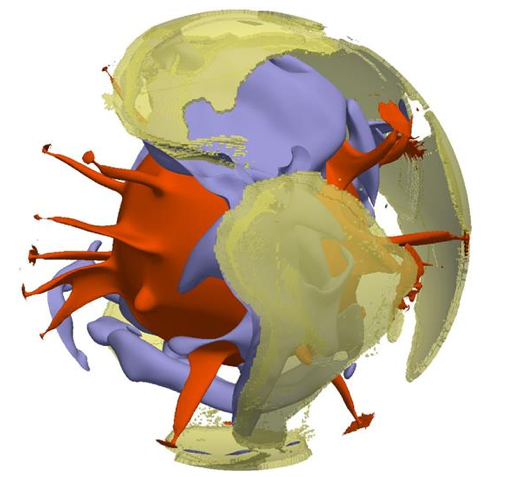
Selected 3-D view state of the model. Continental material is highlighted in yellow. Figure from Coltice & Shephard, 2018 “Tectonic predictions with mantle convection models”, Geophysical Journal International, 10.1093/gji/ggx531.
When you feel it gets rough, stick with your plan and keep your relationship with your colleagues positive.
One last question, what advice would you like to give to Early Career Scientists?
When I was hired 15 years ago, times were different. If recruiters had the choice, they would always go for the youngest person, not necessarily the best. Nowadays productivity is the factor that counts most and is imposed on people which makes it very difficult to maintain an interesting profile at an early stage in your career. I would advise to find time and space to feel good and let go of the pressure you might feel in your work. I believe there is room for everyone, just keep the spirit up. When you feel it gets rough, stick with your plan and keep your relationship with your colleagues positive.
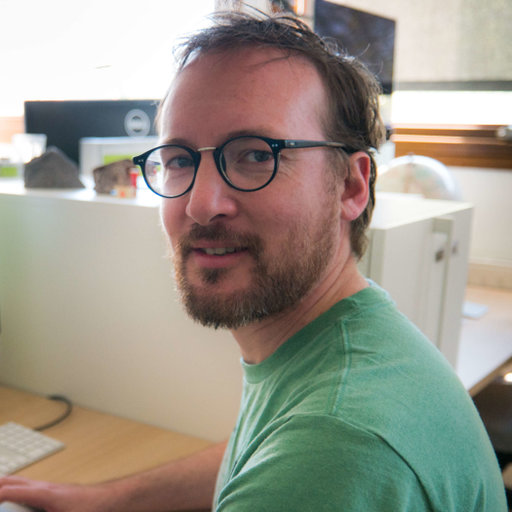
Nicolas Coltice. Credit: Nicolas Coltice.
Interview conducted by Anouk Beniest


